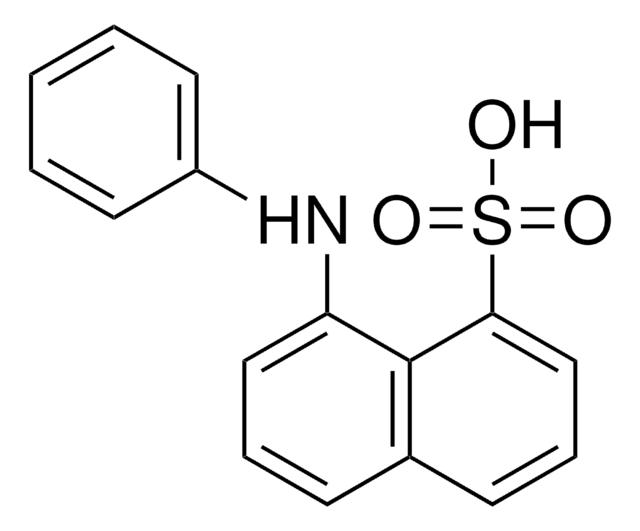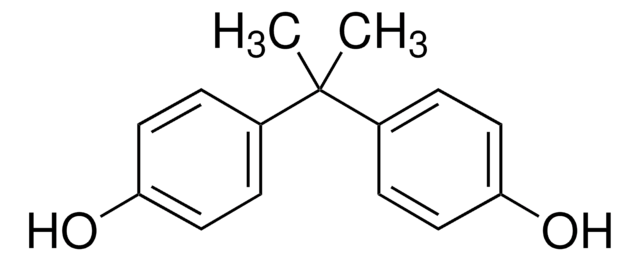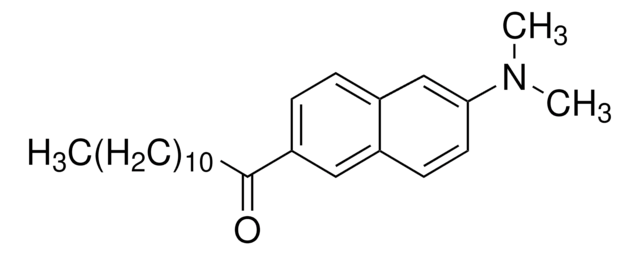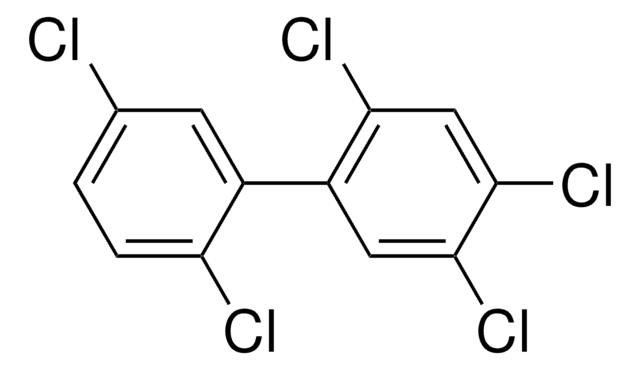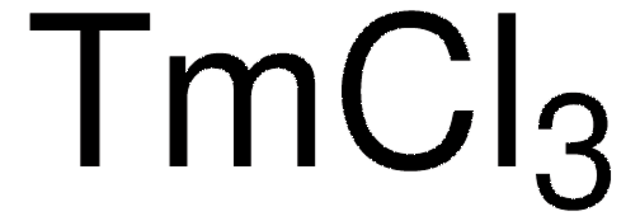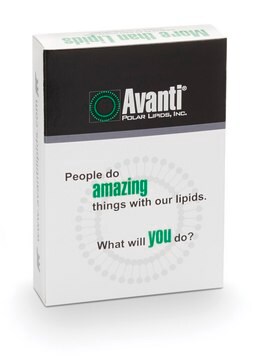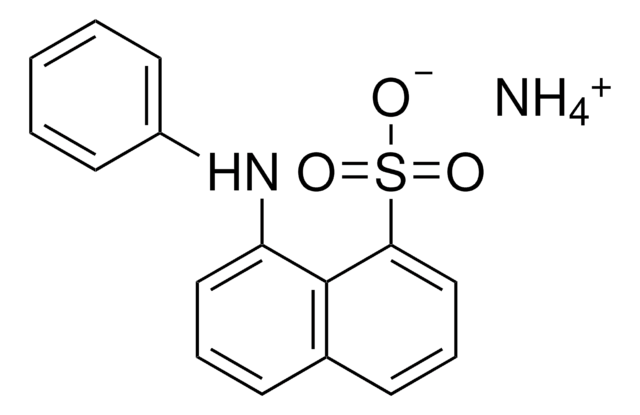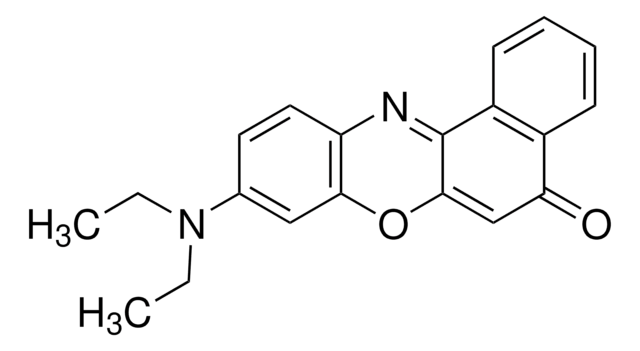Kluczowe dokumenty
41525
N,N-Dimethyl-6-propionyl-2-naphthylamine
BioReagent, suitable for fluorescence, ≥98.0% (HPLC)
Synonim(y):
2-(Dimethylamino)-6-propionylnaphthalene, 6-Propionyl-2-(dimethylamino)naphthalene, Prodan
About This Item
Polecane produkty
linia produktu
BioReagent
Poziom jakości
Próba
≥98.0% (HPLC)
Formularz
solid
mp
137 °C (lit.)
rozpuszczalność
DMF: soluble
acetone: soluble
acetonitrile: soluble
methanol: soluble
fluorescencja
λex 361 nm; λem 498 nm in methanol
przydatność
suitable for fluorescence
ciąg SMILES
CCC(=O)c1ccc2cc(ccc2c1)N(C)C
InChI
1S/C15H17NO/c1-4-15(17)13-6-5-12-10-14(16(2)3)8-7-11(12)9-13/h5-10H,4H2,1-3H3
Klucz InChI
MPPQGYCZBNURDG-UHFFFAOYSA-N
Powiązane kategorie
Zastosowanie
Opakowanie
Inne uwagi
Nie możesz znaleźć właściwego produktu?
Wypróbuj nasz Narzędzie selektora produktów.
Kod klasy składowania
11 - Combustible Solids
Klasa zagrożenia wodnego (WGK)
WGK 3
Temperatura zapłonu (°F)
Not applicable
Temperatura zapłonu (°C)
Not applicable
Środki ochrony indywidualnej
Eyeshields, Gloves, type N95 (US)
Wybierz jedną z najnowszych wersji:
Masz już ten produkt?
Dokumenty związane z niedawno zakupionymi produktami zostały zamieszczone w Bibliotece dokumentów.
Klienci oglądali również te produkty
Produkty
Nitric oxide (NO) as a signal transporter in neurons, endothelial cells and in the immune system.
Nasz zespół naukowców ma doświadczenie we wszystkich obszarach badań, w tym w naukach przyrodniczych, materiałoznawstwie, syntezie chemicznej, chromatografii, analityce i wielu innych dziedzinach.
Skontaktuj się z zespołem ds. pomocy technicznej